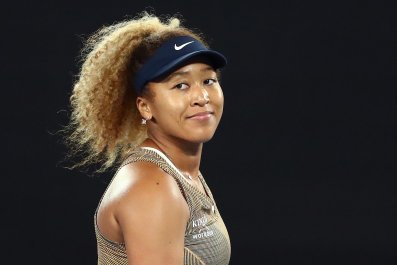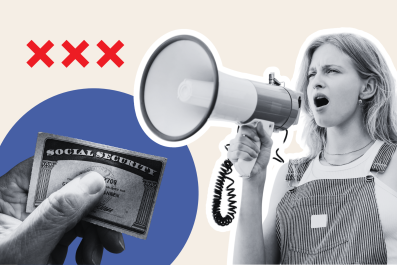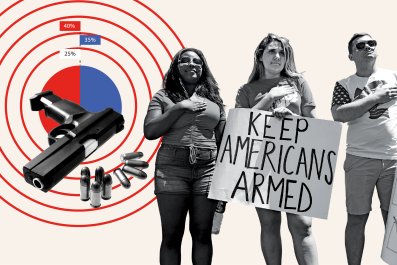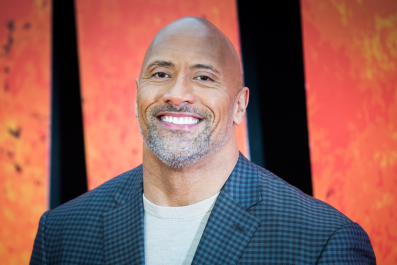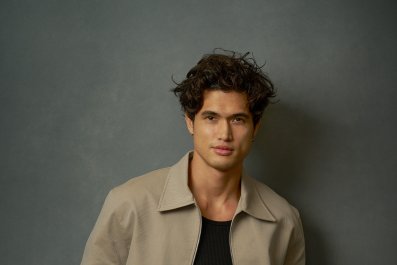Tennis champion Naomi Osaka is a megastar for both her on-court performance with four Grand Slam titles under her belt, as well as her off-court stands on racial and athletes' mental health. When Osaka—the highest paid female athlete—issued a statement that she would not sit for the mandatory post-match press conferences at the 2021 French Open, it began a firestorm that spread beyond Roland-Garros and professional tennis. Atter being fined by tournament officials and threatened with disqualification, Osaka withdrew from the tournament. But in speaking out for her own mental health needs, she opened the door for other athletes to speak more openly about their own struggles as well. Journalist Ben Rothenberg's new book, Naomi Osaka: Her Journey to Finding Her Power and Her Voice, details Naomi's career, including the backstory and new details surrounding Naomi's activism and mental health struggles. In this Q&A, Rothenberg discusses those issues as well as challenges growing up, and what he predicts for her when she returns to play after time off.

Q _ You started following Naomi when she was a teenager. What do you think is her biggest challenge? How has she developed the most?
A _ I think the ultimate challenge for Naomi is her continual struggle to reconcile the shy, sheltered person who she was growing up—who she very much was when I first met her—with the worldwide megastar she has become. I gained greater understanding and appreciation while working on this book for just how isolated she was from other kids during her adolescence; she didn't have anything like what we think of as "normal" social development for a teen because of her family's single-minded pursuit of their tennis dreams, which involved taking her and her sister out of traditional schools at a young age. In a lot of ways she has been catching up on that as an adult, and she's often doing it under a very bright spotlight. But I also think the way she is visibly growing, learning and evolving before our eyes is part of what has made her so compelling.
Naomi became a very public activist after George Floyd was killed by police in the summer of 2020. Does her activism complement or conflict with her tennis career?
I was first inspired to write this book during Naomi's remarkable summer of 2020. She took on the cause of racial justice not only during that summer, but through her tournaments. By forcing the stoppage in play and wearing the masks with victims' names on court, Naomi foregrounded activism in a way no other tennis player had ever done during a major competition. And rather than let that cause weigh her down or distract her, she used it as inspiration and motivation to summon some of the best tennis of her life.

Did Naomi's announcement that she would not sit for press conferences surprise you? Did anything portend her mental health crisis?
Like everyone else in tennis media, I was caught off guard when she first announced her boycott; she hadn't shown any obvious distress that any of us had noticed. Naomi had been known for being unusually candid and raw with the media, which is part of what made her such a favorite for the core tennis press corps since she first arrived. But with hindsight, it was also clear that such openness and authenticity also made her more vulnerable; because she didn't hide behind cliches like so many athletes do, she felt and processed every question deeply and unguardedly. As pressure built up in her mind—both because she had won the last two major tournaments she'd played and because the Tokyo Olympics were fast approaching—she decided media obligations were an area where she could slam on the brakes to regain control, but she underestimated how much whiplash that would cause her.
By age 22, Naomi was the highest paid female athlete ever. Do you think this contributed to the excessive pressure she felt? How?
Absolutely, and this is something I don't think players and agents in the sport often appreciate enough. Sponsors are paying not just because of what you've done but because of what they think you'll do next, and accepting the money that is paired with that expectation ratchets up pressure. Every sponsorship (or magazine cover) that increases visibility amps up the ambient pressure considerably in an already hugely stressful individual sport.

In some ways, Naomi's announcement was the first domino falling, leading to more honest conversation by athletes—such as gymnast Simone Biles and football player Lane Johnson—about the emotional toll sports demands of them. Have athletes become more sensitive, or is it just now more acceptable to admit vulnerability?
By pulling out of a major competition rather than force herself to fight through the anguish she was feeling, Naomi took a lot of conversations that were happening during the pandemic about mental health, self-care and work-life balance and put them on the grand stage of international sports, where they could be seen as an example for a huge part of the world. That act, which Naomi said felt small and personal at the time, resonated not only among professional athletes, but people everywhere, young and old.

Naomi announced a return to the court in 2024 with ambitious goals for winning more Grand Slams. What do you predict for her when she rejoins the tour?
Naomi's team is very confident. She rehired her coach Wim Fissette, with whom she won her two most recent major titles, and he's told me he's been incredibly impressed by her motivation during her training, which wasn't consistently there during her struggles in recent years. If she stays fit, there's no reason she can't start contending for big titles in 2024. Maybe not in her very first tournaments back, but certainly within a few months.
What was the most surprising thing you learned when writing this book?
Most of all, by just how much I learned. For someone who is only 26 years old and has been hugely famous for years, I was struck by how much of Naomi's remarkable story had never before been explored or told. From Naomi's acting role in her father's intense independent film as a child, to her family facing eviction as she made her debut onto the WTA Tour, there were so many disparate pieces to the puzzle that I didn't know existed, but that helped bring so much of her life into clearer focus once I saw where they snapped into place. Putting everything together helped me—and hopefully, thus, the readers—understand not only where Naomi has been, but where she's going next.



